On 1 May, Neil Thomas, director of investigative services for APU, a company that recovers stolen vehicles, received an alert from a tracking device fitted to a British-registered Lexus RX450h that placed it in Le Havre, France.
The car, the property of Accident Exchange, APU’s sister company, which arranges loan cars for drivers involved in accidents that were not their fault, shouldn’t have been there because it wasn’t insured for international travel.
APU specialises in looking after car fleets and carrying out investigations relating to accidents and motor insurance fraud. It monitors the movements of cars with a total value of more than £60 million via the use of tracking devices and its own bespoke Asset Recovery Unit.
When the Lexus alert occurred, APU checked out the story of the client to whom the vehicle had been loaned.
Thomas says: “He’d contacted Accident Exchange and explained that he was a non-fault driver who had been in an accident with a dustbin lorry in London. He had its registration, the driver’s name and all of the details for what appeared to be a credible accident.
“We dealt with it as a low-level threat because there might have been a legitimate explanation, but when we investigated a bit further we couldn’t get hold of the client. He had gone off the radar.”
When the tracking system pinpointed that the Lexus was now at sea in a shipping container on a cargo ship, Thomas says “it raised concerns” that the client’s identity and accident were works of fiction.
APU gathered a dossier of evidence, tracking the shipping container to Oman. “We could say with certainty that it was on a particular boat so, at that stage, the Metropolitan Police reported it as stolen,” says Thomas.
It was an important step because it meant the Lexus was now in the crime system. APU has an information-sharing agreement with NaVCIS, the National Vehicle Crime Intelligence Service, which in turn notified the National Crime Agency (NCA), an international body that tackles threats facing the UK from serious organised crime.
Paul Stanfield, the NCA’s regional manager for east and southern Africa, says: “In the first three months of 2015, vehicles worth a total of about £100m were stolen in the UK. I was told that Uganda, which is in my management zone, is one of the centres of the market where cars were brought in from the UK and sold on.”
Uganda was once a British protectorate and its motorists still drive on the left, so right-hand-drive vehicles are desirable.
“The cars in Africa can be at least double the price that you would pay in the UK,” says Stanfield. “Importing them and paying the taxes makes the cars very expensive, but also very desirable in Africa.”
As Stanfield dug deeper, he discovered that stolen UK cars had been recovered by the Ugandan authorities in the past but were still sitting in secure compounds. He found myriad reasons for this including communication difficulties between organisations across different continents, stretched police resources and insurers reluctant to go to the expense of recovering the cars to the UK.
Stanfield was determined to take action: “If new cars are being stolen shortly after they’ve been sold, that’s undermining the market because customers won’t buy them and insurers won’t cover them.”
The NCA decided to mount a sting operation when the next UK-registered stolen car turned up in Africa. When Stanfield found out about APU’s tracker-equipped Lexus, which had reached port in Mombasa, Kenya, he decided it was a perfect opportunity to track the movements of the criminals.
“We had to get permission from APU because the company’s priority is to recover the car,” he says. “The good thing is that Neil Thomas is a former police officer and understood our situation.”
The shipping container, now under covert surveillance by local police, was taken off the boat at Mombasa in Kenya and travelled west across the country on a low-sided truck. Thanks to the car’s tracking device, the police were able to remain at arm’s length and avoid arousing suspicion.
“We identified corruption involving port officials,” says Stanfield. “The vehicle went from Kenya into Uganda, where we saw more corruption at the border.”
The crooks took advantage of discrepancies in customs checks between different nations to smuggle the cars through.
“To take a car into Kenya, it must be examined in the UK to make sure it is roadworthy and not stolen, which, of course, didn’t happen,” says Stanfield. “When you go to Uganda, the onus is on the individual to register it and do the necessary checks, but criminals don’t.”
Instead, to get it into Kenya, the container’s contents were listed as random items. According to its manifest, it should have contained a cement mixer, sacks of used shoes and restaurant tables. Entering Uganda, however, the contents were declared as cars, so that the documentation appeared to be legitimate.
The cars were transported to the Ugandan capital of Kampala and from there to a bonded warehouse, where imported goods are stored until their owners collect them and pay the duty.Stanfield’s team waited to see who would come to collect the cars, but hopes of catching the criminal ringleaders were in vain.
“The customer buying the car would be instructed to come to the warehouse and would be responsible for paying any duty,” says Stanfield. “So the criminals involved didn’t have to turn up at the scene.”
Stanfield decided to swoop on the bonded warehouse to preserve the evidence and ensure APU’s Lexus didn’t disappear into the hands of an expectant Ugandan owner.
“There were three more stolen cars from the UK in the container with the Lexus, and others in the warehouse,” he says. “We investigated other bonded warehouses and in total found 34 high-value cars that had been stolen from the UK.”
Stanfield hopes that seizing and repatriating the cars will scare off anyone interested in buying a black market car.
“People who had been stopped in stolen cars all argued they had bought them in good faith,” he says. “We doubt that was the case, but trying to prove it is another matter.
“I told the Ugandan chief of police it was absolutely essential that we repatriate these cars to the UK to take the incentive out of the market, and he agreed. If people think they can get away by saying they bought the car in good faith, they will continue to do it. Whereas if you take a car off someone who has just paid $70,000, that is a lot of money to lose.
“All the indications are that, owing to our joint actions, the bottom of the stolen car market is dropping out. The local police say there has been a real reduction in the number of UK cars turning up in Uganda.”
A key factor in the success of Stanfield’s operation was that APU’s tracking device continued to transmit its position throughout the car’s long journey.
“All tracking systems can be blocked, but this is more intelligent than most,” says Thomas. “We do a lot of monitoring work, but this one was on a different level because of the geography and logistics.
“Information about most commercially available tracking devices and their fitting instructions are available on the internet. Ours can’t be found electronically or physically, and you can’t go online and find the instructions.”
Stanfield acknowledges that without APU’s tracking technology, uncovering the links between UK and Uganda would have taken him much longer: “On my smartphone I was able to see live tracking of the car at any time. The tracking system APU has is brilliant, but as important from my perspective were the people involved – we had the right partnerships in place.”
Stanfield hopes that as well as disrupting the UK to Uganda route, the NCA will be able to bring some criminal convictions resulting from its ongoing investigation.
Thomas, meanwhile, is waiting for the Lexus to be put back into a shipping container, this time for a legitimate journey across the sea and home to the UK.
Get the latest car news, reviews and galleries from Autocar direct to your inbox every week. Enter your email address below:

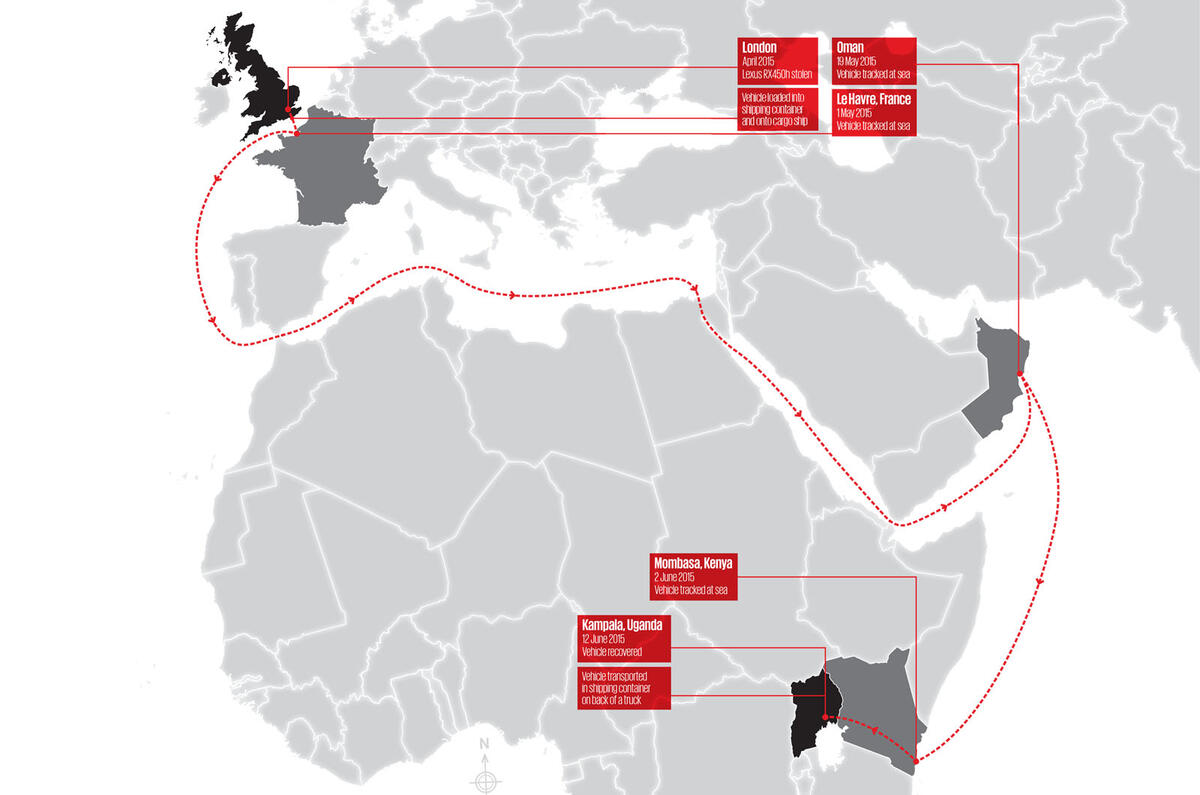
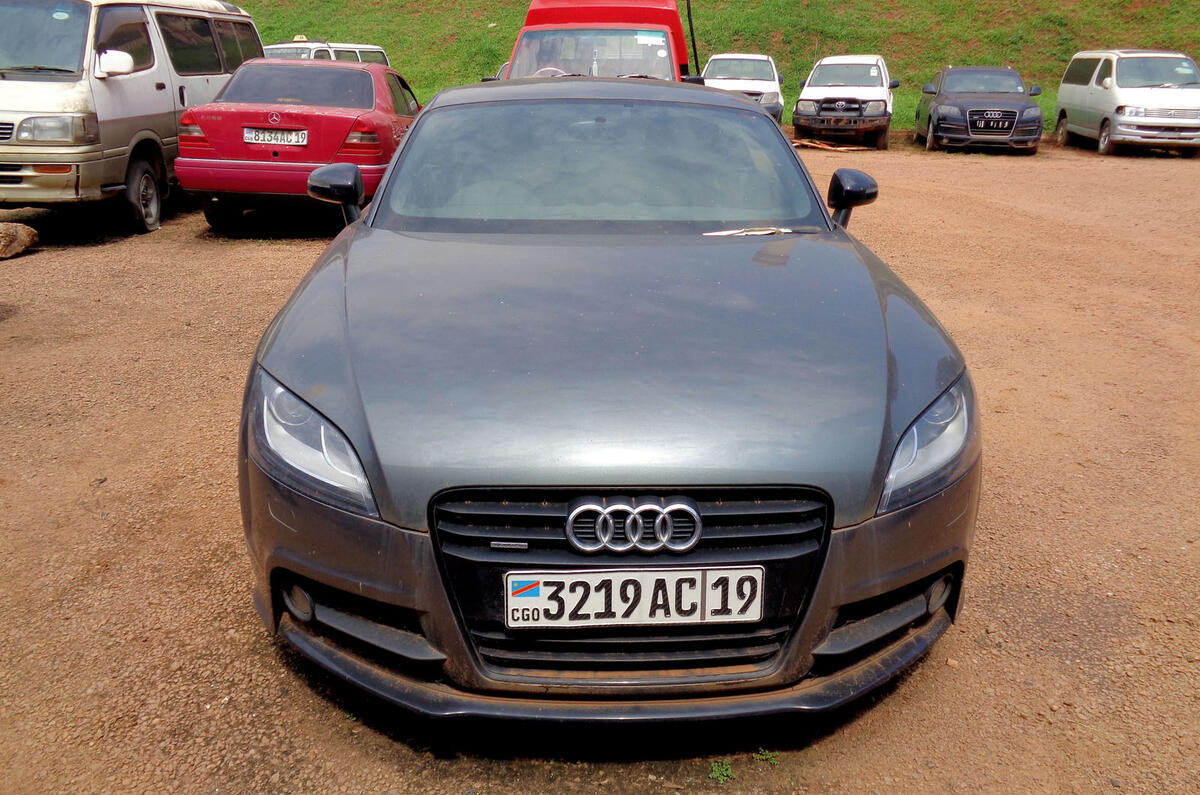
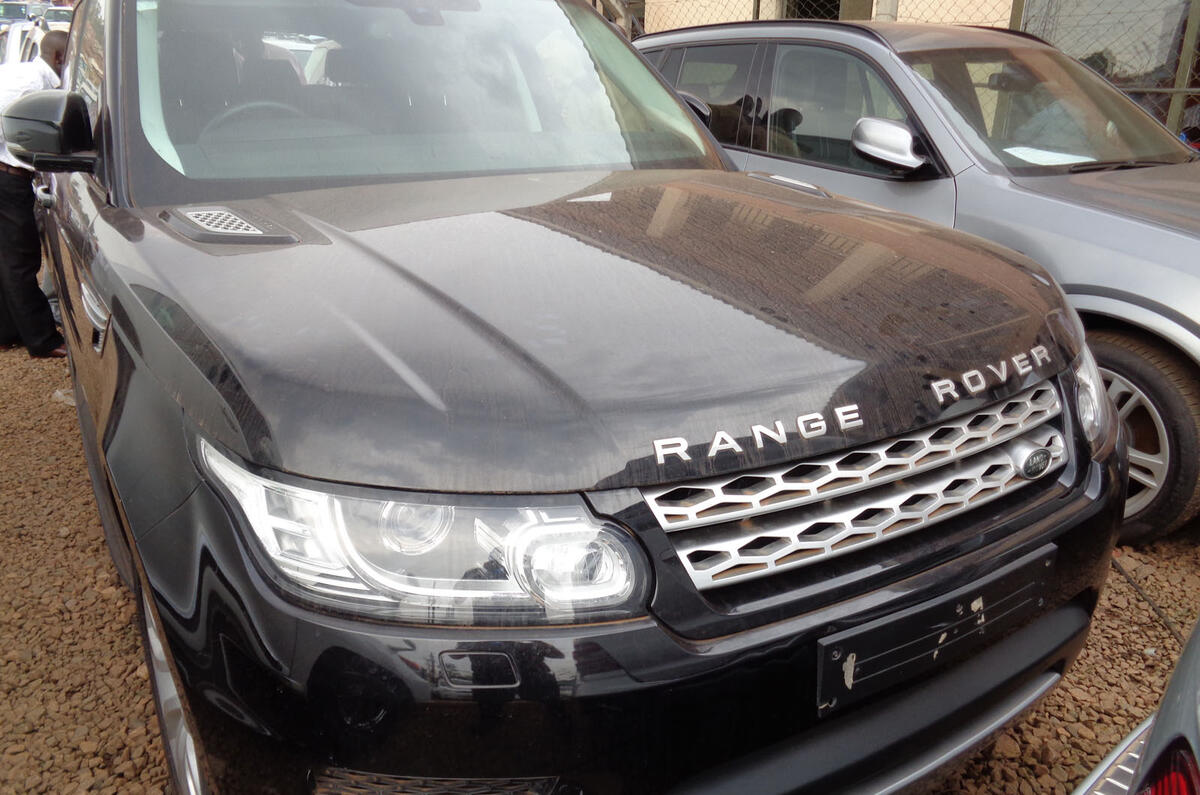
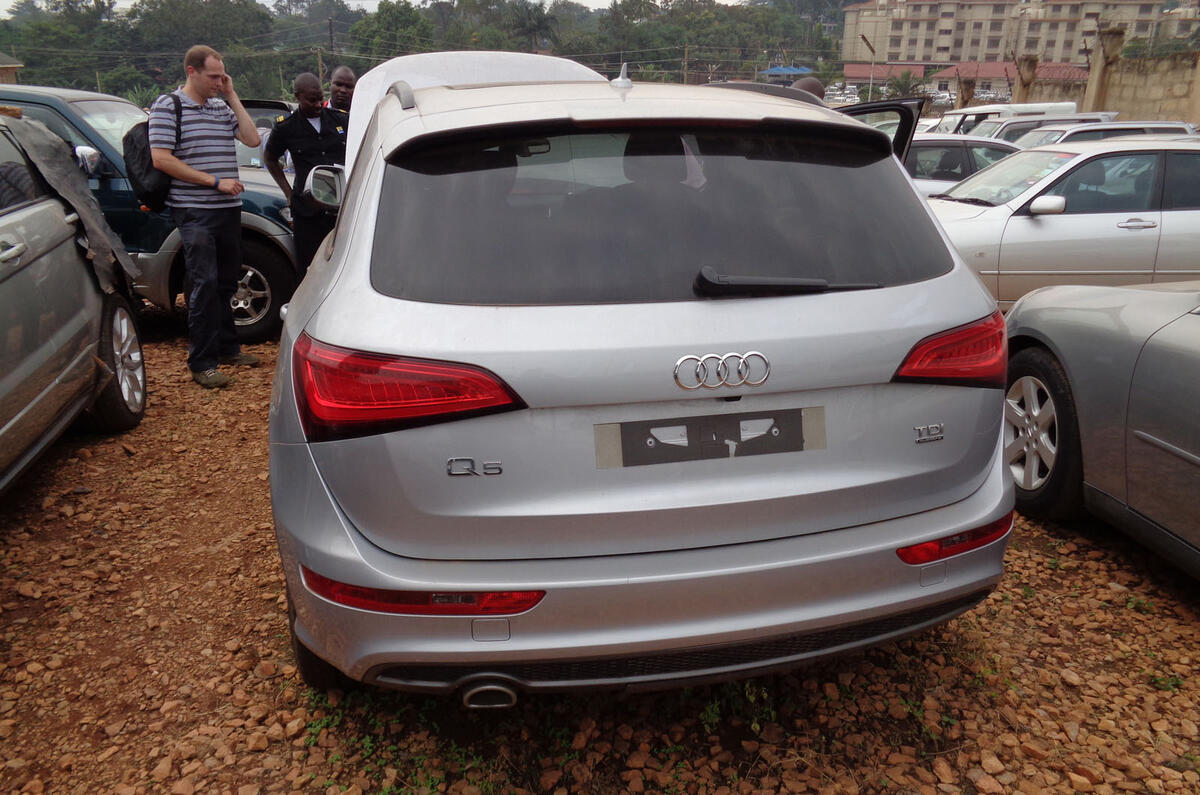
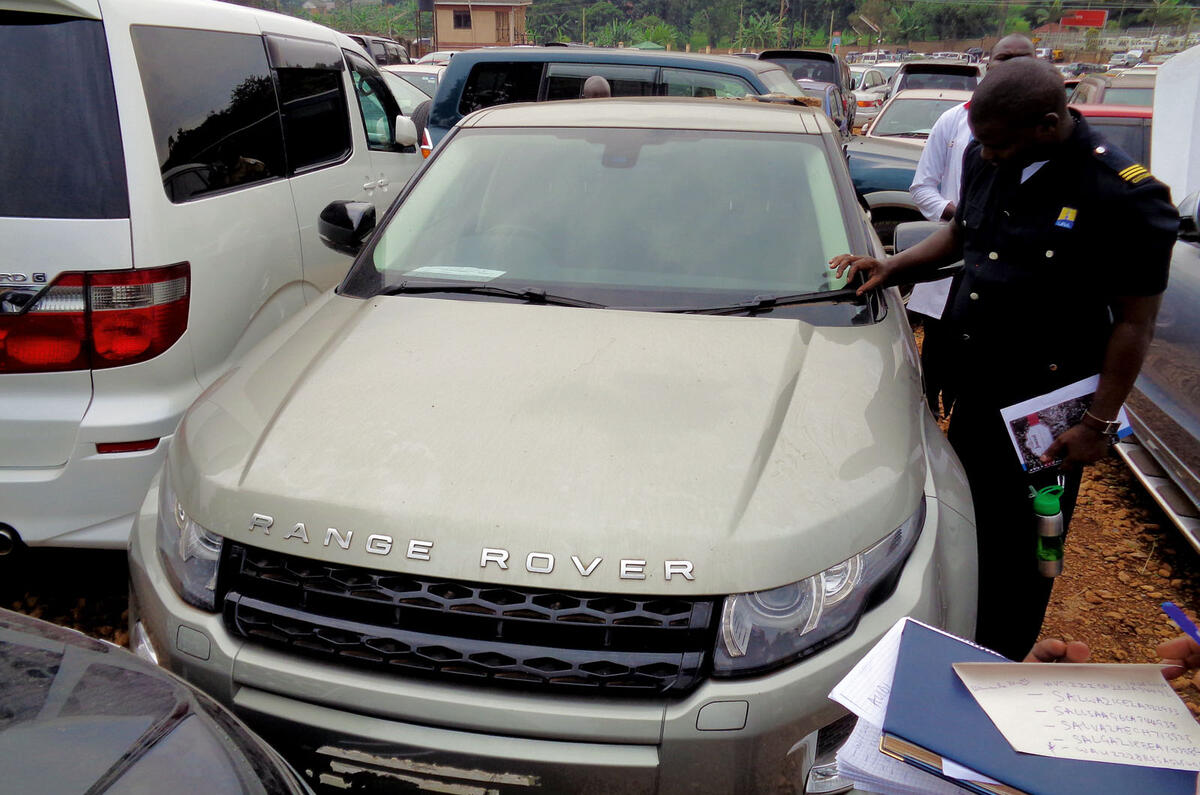
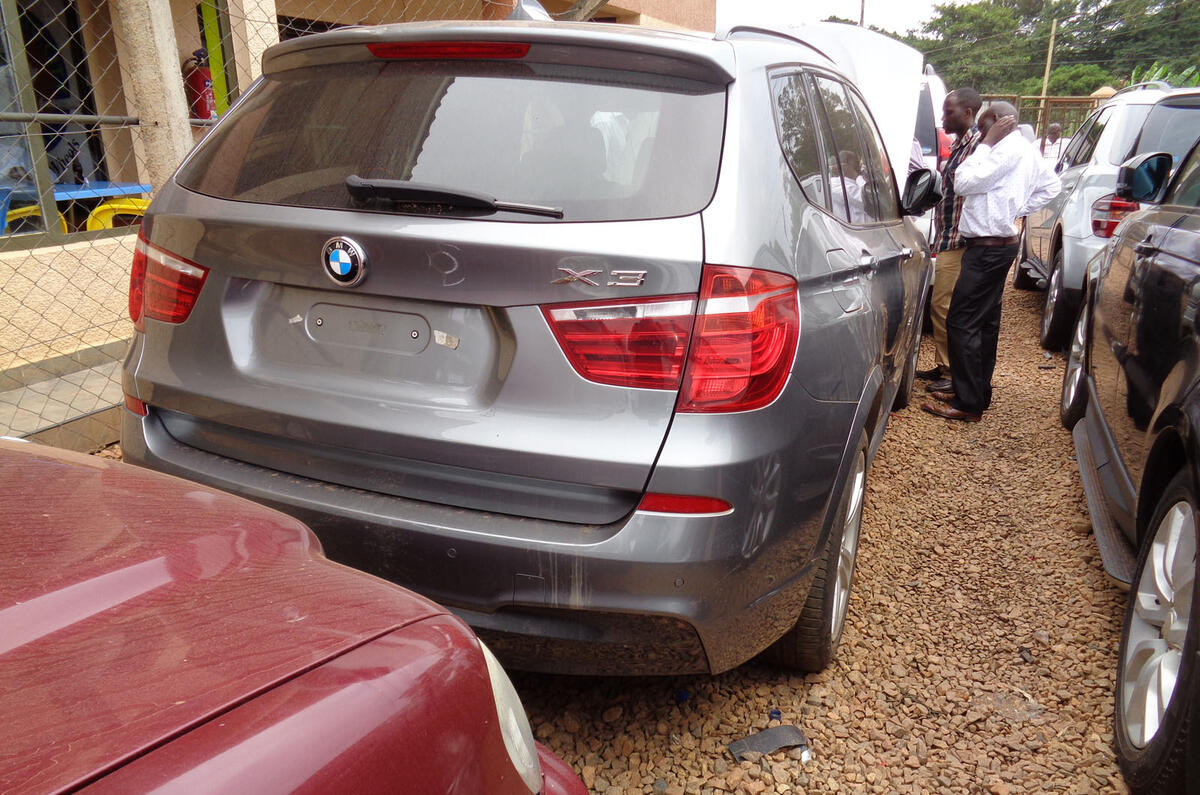
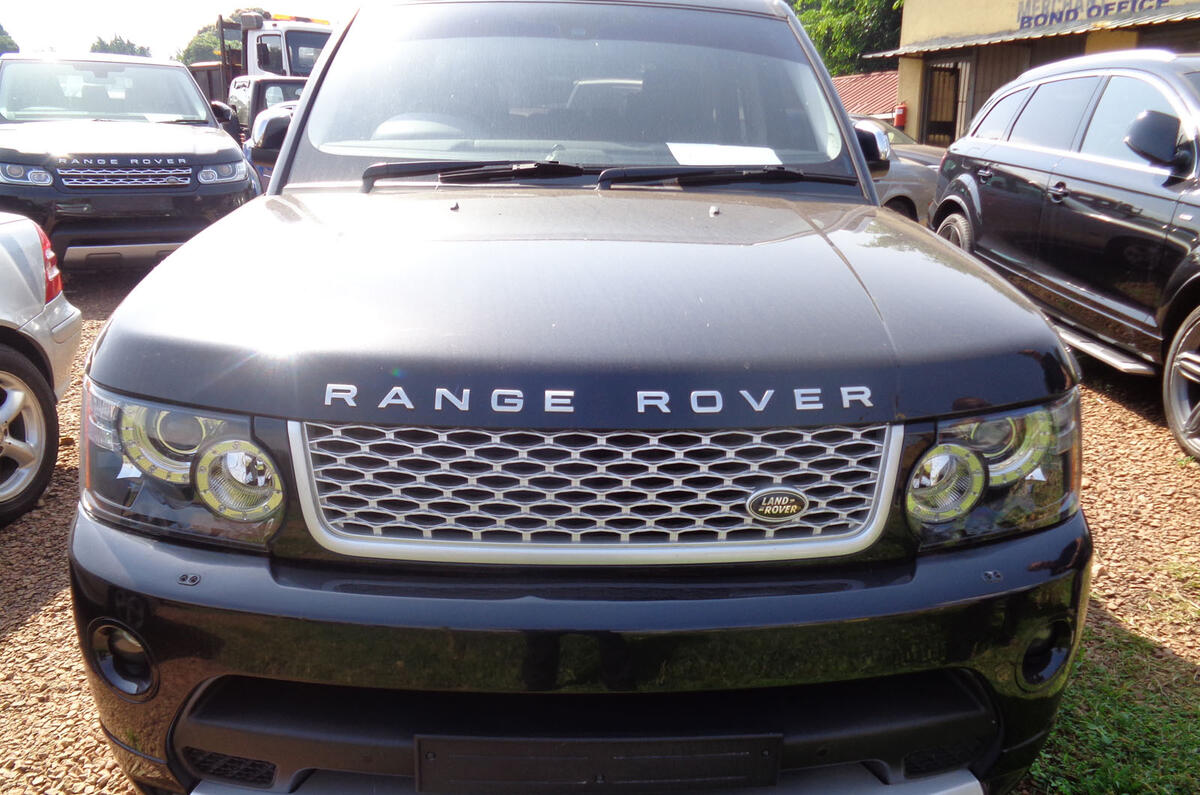
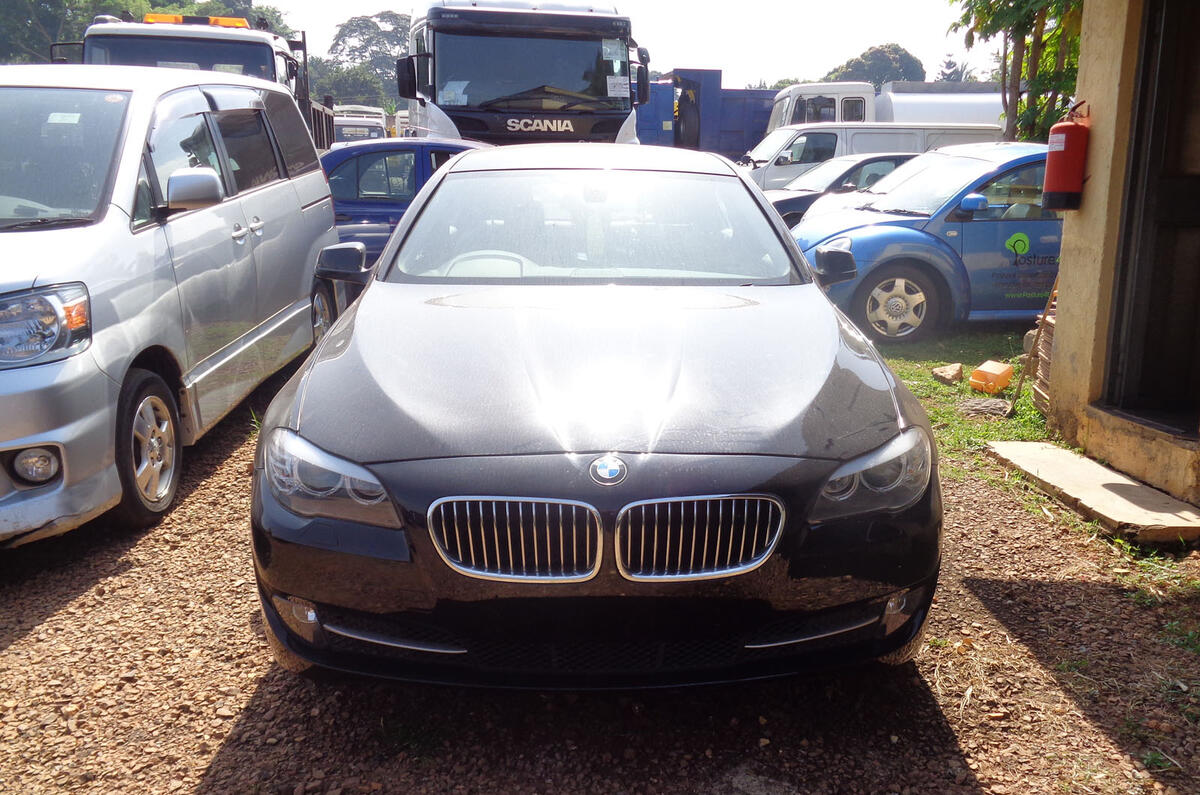
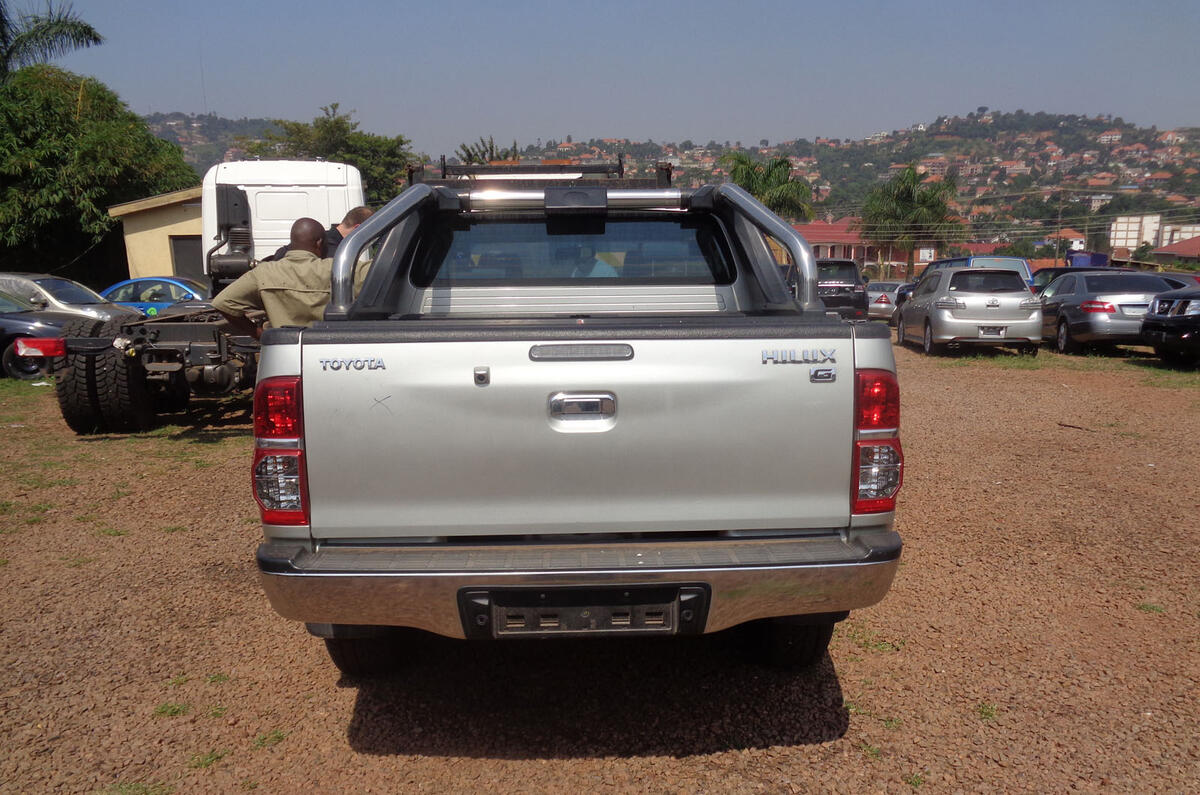
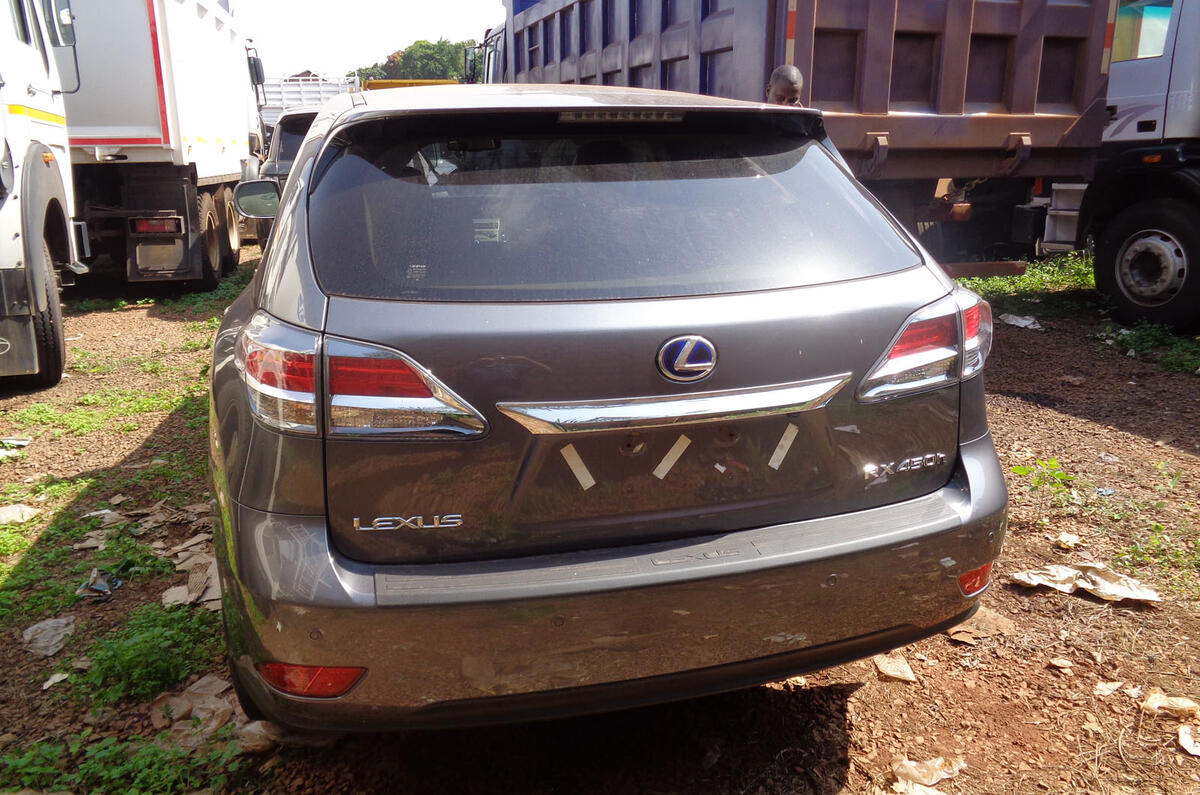
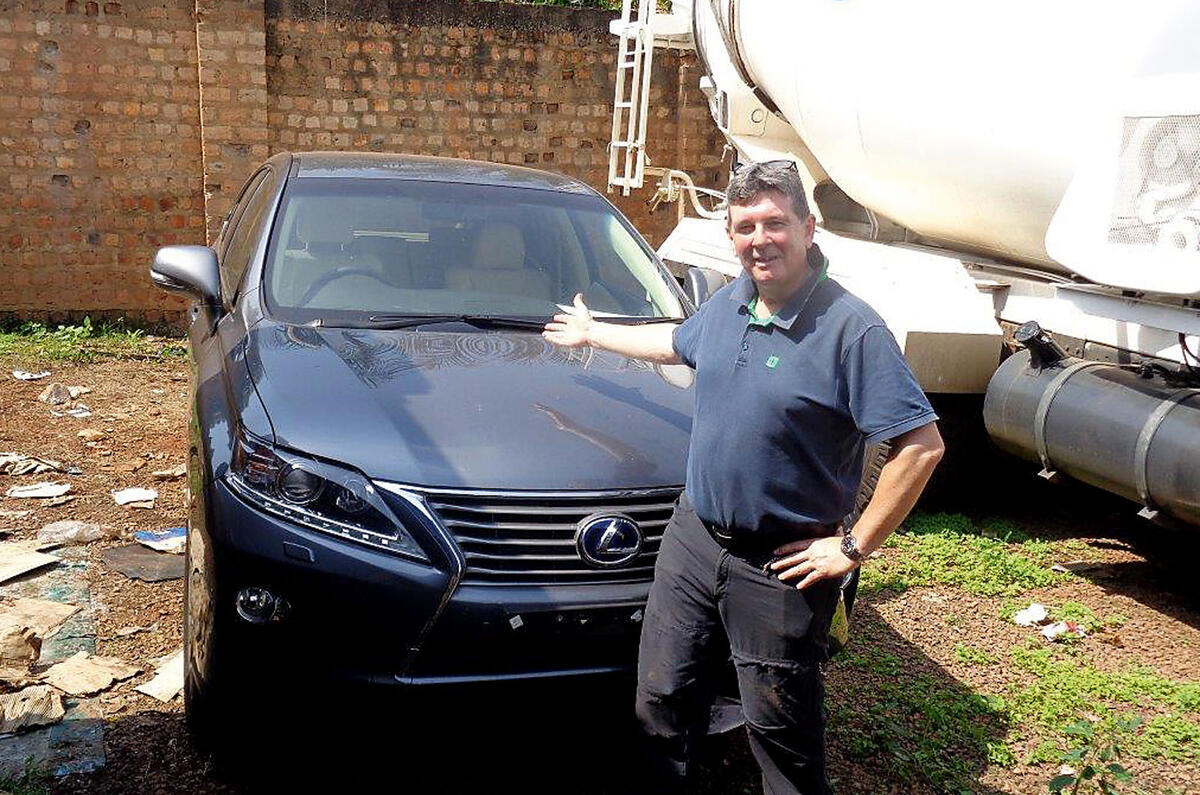
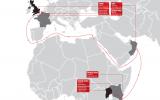

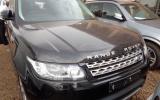

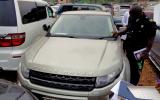

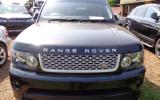

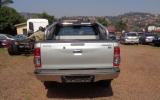
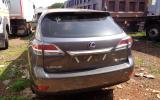



Add your comment